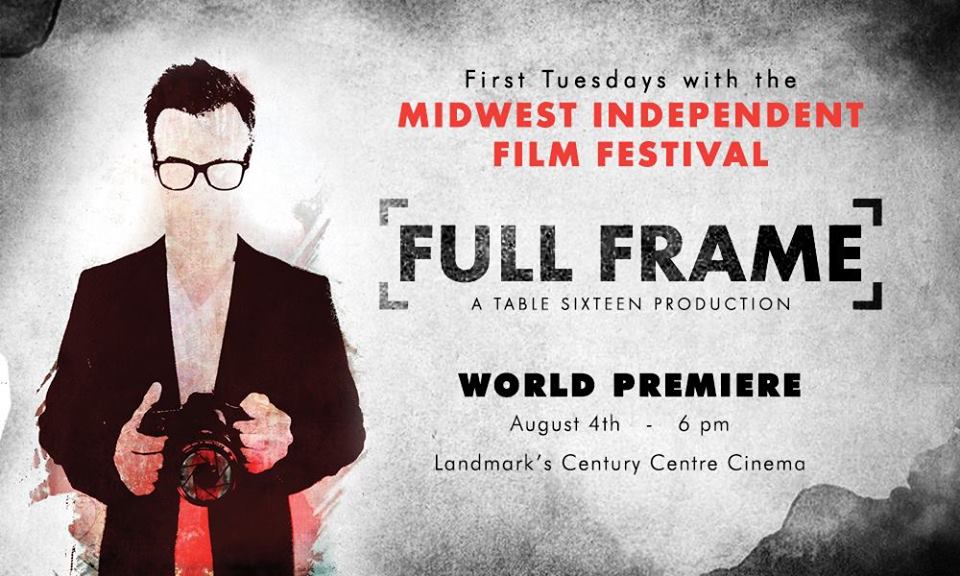Though the topic at hand was technically “the art of the pitch,” last night’s installment of the Midwest Independent Film Festival turned out to be a testament to the vitality of collaboration and how it can enable artists to accomplish far more than they ever could on their own. Three filmmakers took part in a pre-screening panel moderated by the Chicago Tribune’s Nina Metz, and each spoke about the close working relationship they have forged with their key collaborators. Sharon Greene of The Neo-Futurists said that writing a script with someone else pushes you to explain every one of your choices, which provides a great practice ground for the eventual pitch. “Operator,” the film Greene made with her wife, Logan Kibens, was initially hurt and then helped by Spike Jonze’s “Her” during pitch sessions, due to the coincidental similarity of its subject matter. Actors Martin Starr and Mae Whitman wrapped production on the film in Chicago last week.
“It’s about a man who designs digital customer service voices for a living,” explained Greene. “We meet him on the day that one of his voices—an Ed Debevic’s-style voice for a health care company—is bombing spectacularly. Under pressure and given a week, he decides to redesign the voice based on his wife, and the film is about what happens when he analyzes, breaks down and replicates the woman he loves the most. He’s trying to freeze her at a time when she’s undergoing rapid change.”
Erica Weiss spoke about her 12-year collaboration with creative partner Caitlin Parrish, who has several writing credits for TV programs including the upcoming “Supergirl.” The pair co-founded the local company, Teleporter Productions, and have co-directed their first feature, “The View From Tall,” which explores the unlikely friendship between a 17-year-old girl and her wheelchair-bound therapist. The film’s cast, crew and locations are all from the Chicagoland area. Weiss spoke memorably about the interesting balance that must be struck while pitching a project.
“You have to figure out a way to make your film sound like something that no one has ever seen before, while also describing it in a way that enables people to relate it to other films they’ve seen,” said Weiss.
The final guest on the panel, Victoria Kelley, raised numerous eyebrows when she revealed that “Full Frame,” the latest film she made with her husband, writer/director Christopher Kelley, had an $8,000 budget, the majority of which was spent on music licensing and catering. The film was shot in Quincy, Illinois, with local citizens volunteering as the cast and crew. Since the Kelleys have numerous connections around town, they were able to utilize multiple locations free of charge, while three couples played a crucial role in providing necessary funds.
Following the panel was the world premiere screening of “Full Frame,” a noir thriller about a photographer who stumbles upon the corpse of a beautiful woman. Kelley’s influences are apparent from the get-go, with the opening shot of a burning photo reassembling itself (much like the disappearing Polaroid image in “Memento”). There’s a nice nod to the famous close-up of Ingrid Bergman clutching the MacGuffin in Hitchcock’s “Notorious,” as well as a few references to one of Kelley’s favorite films, “Mulholland Dr.” The photographer has more than a passing resemblance to Justin Theroux’s character in David Lynch’s 2001 masterpiece, and there’s even a scene where he hammers a villain’s car with a baseball bat. By that point, however, the photographer is clad in a mask that causes him to resemble a rogue Weird Al Yankovic.
I’ll confess that it took me about half the picture to get on its goofy wavelength. The pedestrian nature of the dialogue and acting were too much of a distraction, and the scenes that were often most effective were the ones that didn’t involve talking. At its best, the film serves as a showcase for Kelley’s remarkable versatility. Entire stretches of the film are carried purely on the strength of Kelley’s editing, and his equally impressive sound design earns laughs with small touches, such as how the main baddie chomps on a communion wafer. It’s impossible to take any of this very seriously, and once I allowed myself to laugh at the film’s moments of inspired absurdity—particularly when a man turns to resemble the picture of himself hanging on the wall behind him (a la “Airplane!”)—I found myself starting to enjoy it.
Stealing scenes in the final reel is Charles Whitcomb, the owner of an archery shop in Quincy, whose grave line delivery would give Michael Caine and Anthony Hopkins a run for their money. He has a few moments toward the end that could very well earn him cult status, and during the festival’s post-screening Q&A, he garnered the biggest laugh of the night. While explaining that many of the customers at his shop are naturally hunters, he quipped that most people in Chicago don’t know very much about hunting. Suddenly, the voice of what appeared to be a disgruntled “Lion Lives Matter” activist in the audience hollered out, “We didn’t kill Cecil, though!” Undeterred by the voice, Whitcomb dryly replied, “That’s my business—killing animals.”
For more information on the Midwest Independent Film Festival, visit its official site. You can also follow it on Facebook and Twitter.












